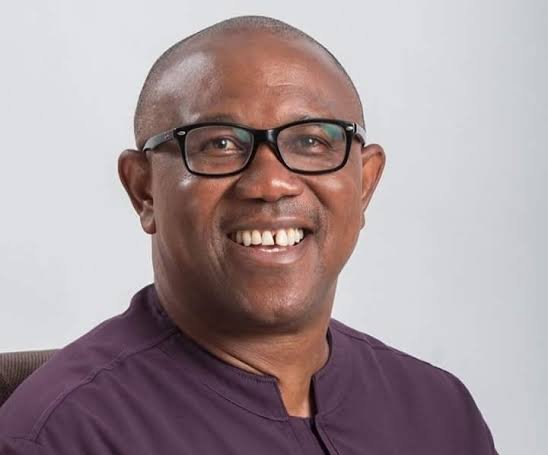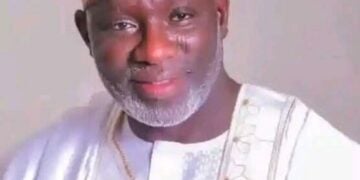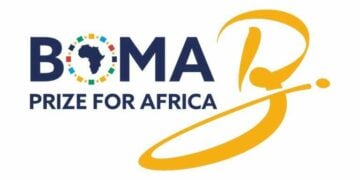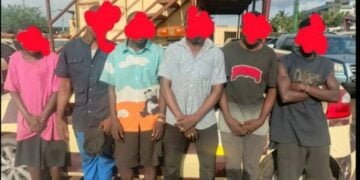Presidential candidates of the People’s Democratic Party (PDP), Atiku Abubakar; All Progressives Congress (APC), Bola Ahmed Tinubu, and the New Nigeria Peoples Party (NNPP), Rabiu Musa Kwankwanso, yesterday kicked against an opinion poll conducted by NOI Polls, which tipped the Labour Party (LP) candidate, Mr Peter Obi, to win the 2023 the presidential election higher.
Nigeria’s presidential election will be held in February 2023 and campaigns will begin on the 28 of this month, according to the Independent National Electoral Commission (INEC) guideline in the election circle.
The opinion poll released by NOI Polls, an opinion polling centre with a database of over 70 million phone numbers, favoured Obi to win the 2023 presidential election.
The poll commissioned by ANAP Foundation, which was conducted this month suggests a three-horse presidential race between Obi, Tinubu and Atiku.
Kwankwaso of the NNPP who came fourth in the poll was described as a ‘dark horse.’
“The results showed a significant lead for Mr Peter Obi with 21 percent of voters proposing to vote for him if the presidential election were to be conducted today; and 13 per cent each proposing to vote for Asiwaju Bola Ahmed Tinubu and Alhaji Atiku Abubakar who are both tied in second place. Dr Rabiu Kwankwaso was a distant fourth with 3 percent of voters proposing to vote for him,” a statement by ANAP Foundation announcing the result of the poll noted.
The Labour Party candidate led the pack in virtually all the age categories.
About 33 per cent of the respondents were undecided, while another 15 per cent refused to disclose who they would vote for, giving Obi the lead.
The statement anouncing the result of the opinion poll stated: “Mr Peter Obi’s 8 percentage point lead at this early stage is significant, but not sufficient to separate him completely from a leading pack of candidates scoring 21 per cent, 13 per cent and 13 per cent respectively,” ANAP said in its statement.
“Undecided voters and those who prefer not to reveal their preferred candidate add up to a whopping 32 percent and 15 per cent respectively. The gender split of undecided voters shows that 39 per cent of women are undecided versus 27 percent of male voters.”
The poll put the percentage of registered voters at 99 per cent in the North East; 90 per cent in the South south, the North Central, and the North-west respectively.
The lowest registered voter percentages were in the South East with 88 per cent and the South-west with 85 per cent.
“When asked if respondents were aware of the various candidates vying for the presidency, data gathered showed that 99 per cent of the respondents were aware of Asiwaju Bola Ahmed Tinubu of the APC. 98 per cent were aware of Alhaji Atiku Abubakar of the PDP. 95 per cent were aware of Mr Peter Obi of LP and 74 per cent were aware of Dr Rabiu Kwankwaso of the NNPP. All other candidates scored below 55 per cent in terms of name recognition,” the statement declared.
The researchers listed the top five reasons why voters are more inclined to vote in the forthcoming elections to include “the need to tackle insecurity (45 per cent), the economy (20 percent), education (9 per cent), unemployment (7 per cent) and poverty alleviation (4 percent).
“Similarly, 46 per cent of the respondents would love to see their preferred presidential candidates participate in a televised interview and/or debate, with the interview/debates spanning across topics like their party manifestos, issues of security, economy, education, job creation, healthcare and agriculture amongst others.
“It is worthy of note that 69 per cent of those aged 18-25, 76 per cent of those aged 26-35, 77 per cent of those aged 36-45, 87 per cent of those aged 46-60 and 89 per cent of those aged 61+ responded saying that they would vote in the coming elections,” ANAP Foundation stated.
The age groups that expressed the greatest willingness to vote were those between 46-60 and 61+ years.
“On average, the poll shows that almost 8 in 10 registered voters are certain that they would be voting in the next presidential election. If they stay committed then we could witness a huge turnout in the February 2023 elections,” it added.
But, while the results showed some significant trends, the poll said it is key to note that the battle ahead lies in the hands of the swing voters, as it appears they would ultimately decide which candidate takes the lead to emerge as Nigeria’s next president of in the 2023 presidential elections.
“In summary, our September 2022 Polls are inconclusive in terms of establishing a clear winner, as the undecided voters are large enough to turn the tables. However, Anap Foundation has concluded that the trends are clear enough to establish the front runners and so our subsequent polls will concentrate on the 4 leading candidates only,” the foundation concluded.
But other leading presidential candidates faulted the poll, stating that it was manipulated.
Presidential candidate of the APC, Bola Ahmed Tinubu, picked holes in the poll, saying it is a dubious concoction.
Tinubu who spoke through the APV Presidential Campaign Council (PCC) said he and the governing party are not in any way perturbed by what he described as dubious opinion polls.
“We are unperturbed by these dubious and unreliable statistics because our research shows that NOI Polls have been off the mark at critical election periods in recent times,” a statement signed by director, Media and Publicity, of the APC campaign council, Bayo Onanuga, noted.
Onanuga said the NOI polls made “wild and incredible permutations on the presidential elections”.
Faulting the polls, Onanuga said, “For example, preparatory to the March 2015 presidential elections, NOI published in October 2014 the results of a ‘Viability Poll’ which used the concepts of Familiarity and Net Favourability Position to survey. In the results, NOI claimed that President Goodluck Jonathan has the best overall familiarity rating at 99% and Net Favourability Probability of ±25.
“By contrast, NOI dismissed the then All Progressives Congress candidate, Muhammadu Buhari as a ‘borderline candidate’ who needed ‘huge public relations’ to shore up his performance.
“But when the Nigerian people went to the polls, who won? The APC candidate and now President, Muhammadu Buhari.
“This is not the only instance when the NOI has turned its political bias in an election period to fraudulent statistics.”
On his part, PDP presidential candidate, Atiku Abubakar, said the poll was manipulated, adding that polls that attract credibility are released with the sample size and the margin of error.
Atiku’s campaign spokesman, Daniel Bwala, said, “Funny, polls are assessed by sample size and margin of errors. The Peter Obi surrogate polling company conjures something to inflate his ego and confuse voters into thinking cyber space translates to physical space. 419 pollsters.
“You have to look at the demographic and the place where the sampling was carried out. It was carried out online and 57.5 percent of Peter Obi supporters who followed him on Twitter are not living in Nigeria. The polling is a true reflection of that.”
Bwala who made Atiku’s position while discussing on Channels TV political programme, Politics Today, further said, “For a candidate to become a president, he must win the majority and get 25 percent. Where Labour Party and the NNPP are seeking to make inroads, PDP is there already”.
Also, the spokesman of the NNPP presidential candidate, Abdulmumini Jibrin, knocked the organisers of the opinion poll, saying the only place Obi will have some significant votes is the South East.
“The only place Obi will demystify the structure is in the South East. They will have a little but they can’t win the national election,” Jibrin said.
No Going Back On BIVAS – INEC
Meanwhile, the Independent National Electoral Commission (INEC) has assured that it will deploy the Bimodal Voter Accreditation System (BVAS) during the 2023 general election.
National commissioner and chairman, Information and Voter Education Committee, Festus Okoyem who disclosed this yesterday while speaking on Channels TV programme, Politics Today, explained that the device was used during the voter registration, and it would be used during voter accreditation or verification and transmission of results in 2023.
Okoye said the commission does not have any fear whatsoever in relation to the validity and legality of the BVAS technological and electronic devices.
He stated: “We are using it for the election. The constitution of the Federal Republic of Nigeria has given the Independent Commission, the exclusive rights, power, and the mandate to organise undertake, and supervise elections that are captured within the confines of the Constitution and that’s exactly what we’re going to continue to do.
“We are accountable to the people of this country and the people see this as a game changer in our electoral process. We cannot go back on the use of the BVAS for the purposes of both accreditation and transmitting of results. These two devices and these two mechanisms and these two protocols are sacrosanct, and the commission is committed to using them during the election”.
Also, a statement signed by Okoye yesterday noted that no new registrant has been added to the register of voters for the 2023 general election.
The statement titled, “Further Update On The Cleaning Up Of The Voters’ Register”, said no new name will be included until the supplemental activities have been completed in line with the law.
Okoye stated: “For the avoidance of doubt, we restate the main components of these activities. First, the Commission is conducting a comprehensive Automated Biometric Identification System (ABIS) cleanup of the registration data by scrutinising every record. Based on the Electoral Act 2022, any record that does not meet all the criteria for inclusion as stipulated in Section 10, including the appearance in person by the registrant at the registration venue with proof of identity, age and nationality and our business rules requirements of adequate number of fingerprints and clear pictures will be invalidated.
“Further, in line with Section 19(1) of the Electoral Act 2022, after the ABIS and clean up, the Commission shall appoint a period of seven days during which the register will be published for scrutiny by the public for objections and complaints.
“Finally, it is only after the cleanup and claims and objections have been completed that the final register will be published.
“The Commission will continue to provide the public with updates on the progress of these processes, as we did through our Press Release of 12 September 2022. The ABIS for the period of registration between 15th January and 31st July is being concluded presently, and the outcome in terms of multiple and ineligible records will be made public. For instance, in Oru East Local Government Area of Imo State, where the Commission allegedly registered ineligible persons, 3,316 ineligible registrants have so far been invalidated and the process is still ongoing.
“The attention of the Commission has been drawn to a report of a press conference addressed by the Coalition of United Political Parties (CUPP) on the Register of Voters for the 2023 general election. The Commission recognizes and respects the right of citizens, either as individuals and groups, to demand explanation from public agencies, including INEC, and to hold them accountable.
“However, it is always important that caution is exercised so that such interventions do not unwittingly sow doubts in the public mind, thereby diminishing public confidence and trust in the electoral process.
“Nigerians would recall that on 31st July 2022, the Commission suspended the Continuous Voter Registration (CVR) to commence supplemental activities that will culminate in the integration of new registrants into the final Register of Voters for the 2023 General Election.
“It is important to reiterate that We appeal to the public to await the Commission’s display of the register for claims and objections to raise any concerns that they may have about the registration. We reiterate that our ABIS is robust and will detect practically all the ineligible records for removal.
“Nigerians should be reassured of the Commission’s commitment to the credibility of the electoral process in Nigeria. We appeal for your support while we painstakingly deal with the cleanup of the register and other processes that will guarantee that the general election in 2023 is free, fair, credible and inclusive.”





